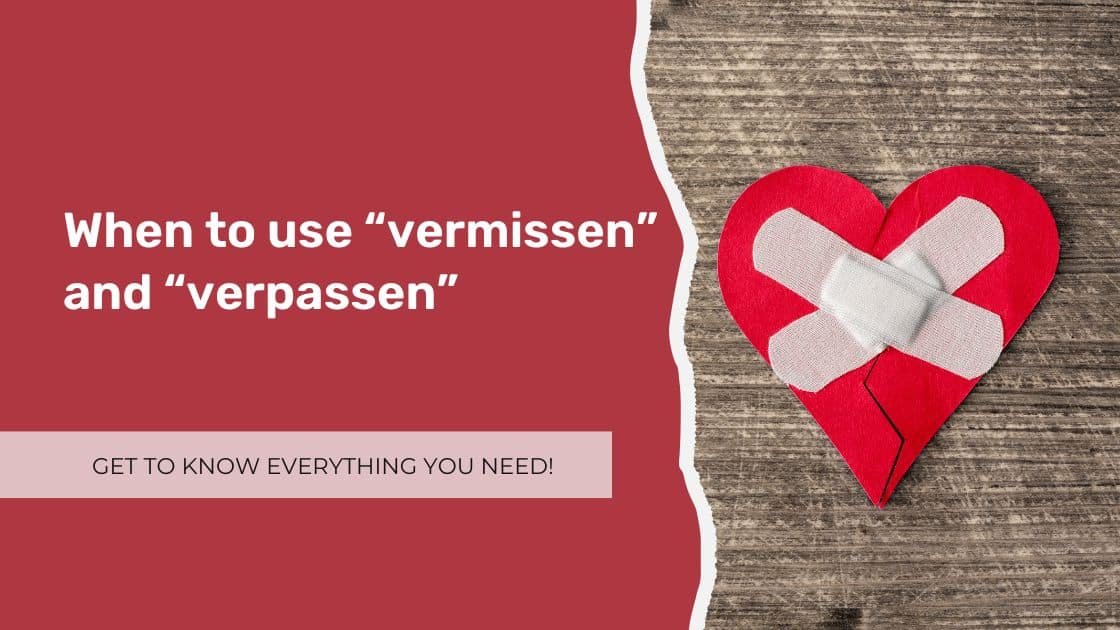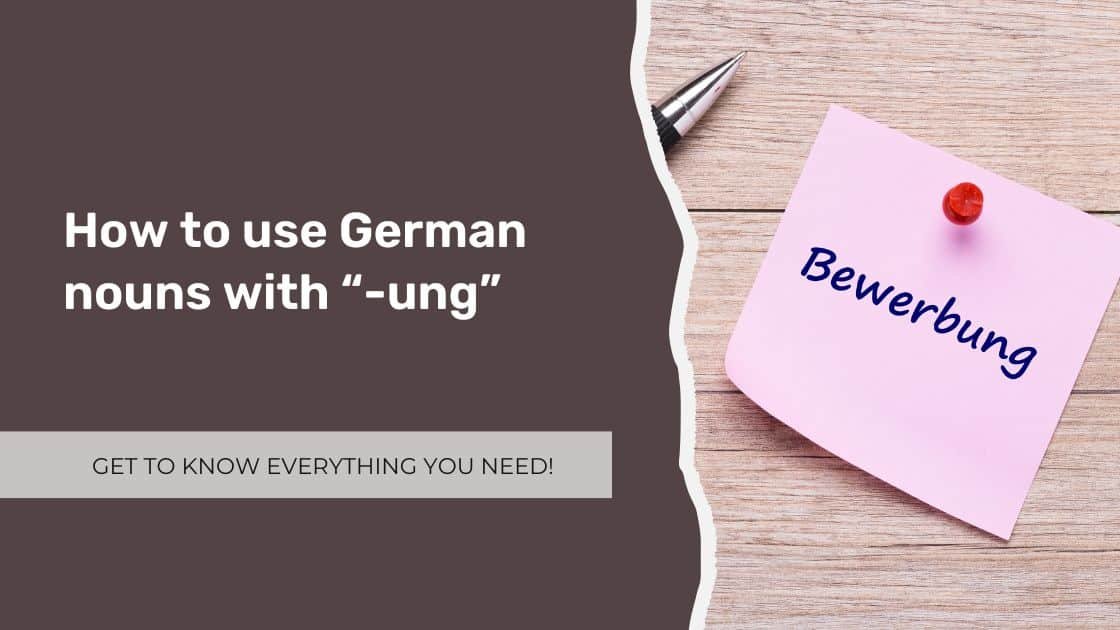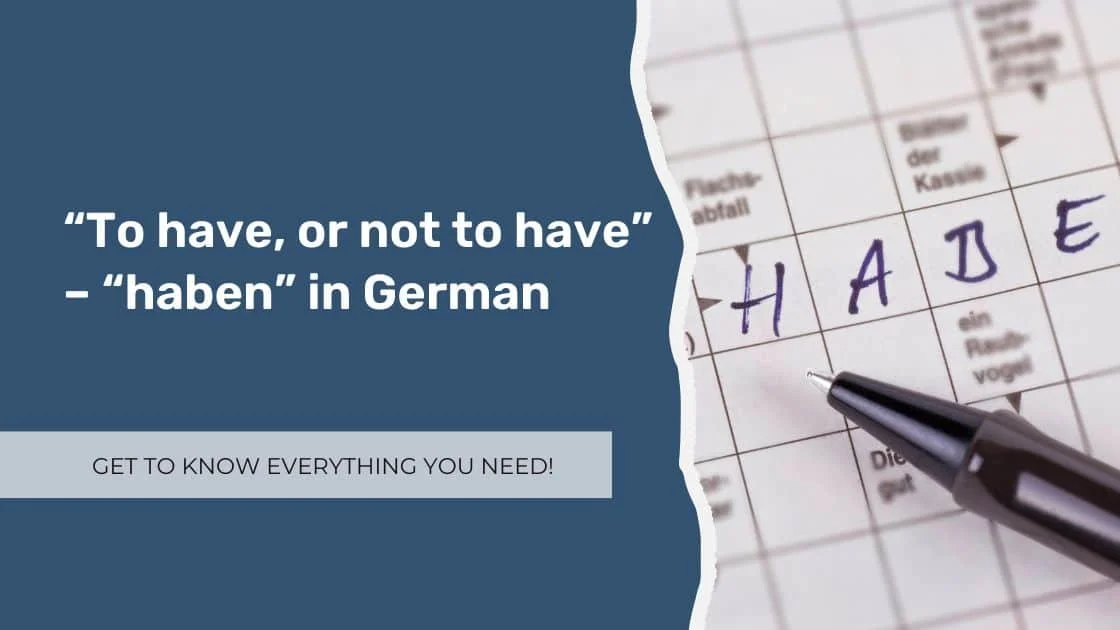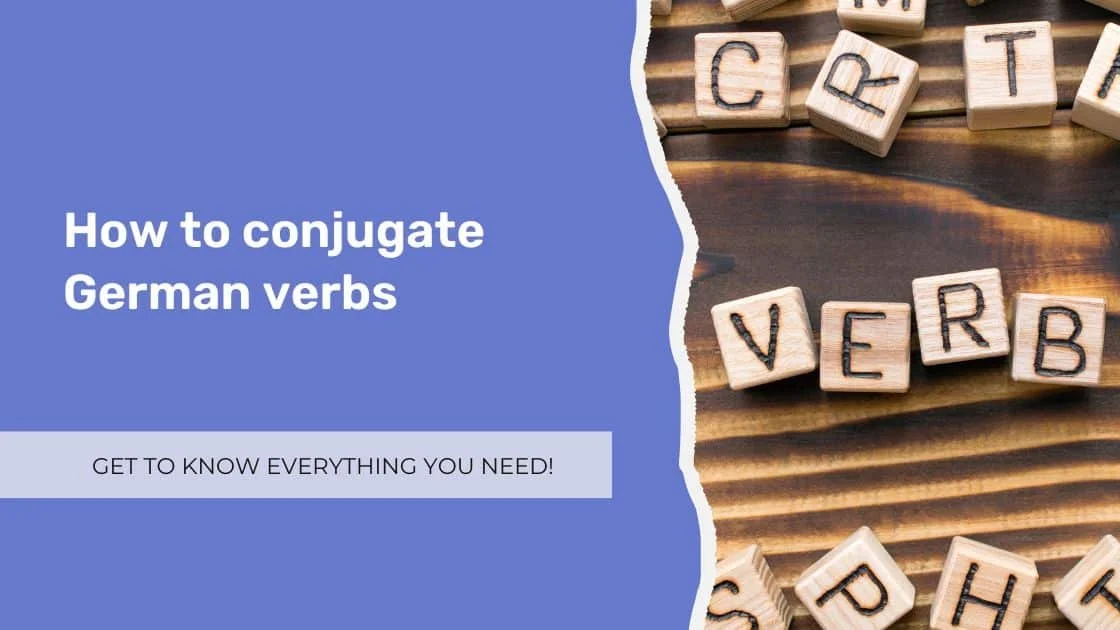Search blog
When to use “seid” or “seit” in German
If you get lost when it comes to the German “seid” and “seit”, this article will shed light into the dark. Get all the information you need!
How to use schmecken, gehören, passen and gefallen
Many students get confused when it comes to the question of how to use “schmecken”, “gehören,” “passen” and “gefallen”. Get to know all you need in this article!
The meaning of “passieren” and “vorübergehen”
Many German students use the verb “passieren” in the wrong way. Find out how to correctly integrate it and when to use “vorübergehen” instead.
The difference between “kochen”, “Kuchen” and “Küche”
Many German students mix up the words “kochen”, “Kuchen” and “Küche”. Find out in this article when to really use which of the three words.
When to use “vermissen” and “verpassen”
Many German students get lost when to really use “vermissen” or “verpassen”. Please find out the meaning of these two verbs and when to use them in this article.
How to use German nouns with “-ung”
The three German genders are problematic opponents for many students. Find out in this article how you can use the nouns with “-ung”
The meaning of “hängen” vs. “hängen” in German
Many have struggled to understand the difference between “hängen” and “hängen” in German. Get to know their differences and how to use them properly.
The difference between “denken” und “nachdenken”
Struggling to understand the difference between "nachdenken" and "denken?" This guide will help you learn the differences between these two verbs.
The difference between “werden”, “wurden”, “worden” and “würden”
It is widespread for German students to get confused by the four German verbs “werden”, “wurden”, “worden” and “würden” repeatedly. This article clarifies their meaning and usage.
When to use “wünschen”, “möchten” and “wollen” in German
Master the subtle differences between "wünschen", "möchten", and "wollen" in German with this insightful guide. Click now to enhance your language skills!
What is the difference between “wollen” and “werden”?
Due to their similarity to English, the two verbs “wollen” and “werden” are easily confused by German students. After reading this article and practicing with its free worksheet, you will be a pro!
How to say something “works” in German without using “arbeiten”
It is a common mistake to use “arbeiten” in German to express that something works out. After reading this article, you will know when to use which verb instead.
Master German negation: How to use 'nein', 'nicht', and 'kein/e' correctly
Are you confused about when to use 'nein,' 'nicht,' or 'kein/e' in German? This detailed guide explains German negation clearly!
German verbs with “-ieren”
Master German verbs with "-ieren"! Discover their unique behavior & usage in this insightful article. Improve your language skills now!
Stellen, legen and setzen – the dilemma of using “put” in German
The German version of “to put” is stellen, legen and setzen. Find out in this article when you should use which verb correctly.
When to use “studieren” and “lernen” in German
Many German students get confused when they need to choose between “studieren” and “lernen”. Find out, when to use which verb once and for all!
How to properly use “bekommen” and “werden”
Avoid the common mistake German learners make with "bekommen" & "werden"! Master their usage with our insightful article & free worksheet. Click now!
“To have, or not to have” – “haben” in German
In German, one of the most essential verbs is “to have”. In this article, you will learn how to conjugate and use this essential verb in your daily speaking.
“To be, or not to be” – the verb “sein” in German
One of the most important verbs in German is “to be”. In this article, you will learn how to conjugate this essential verb and how you can properly integrate it while speaking.
How to conjugate German verbs
Dive into German verb conjugation for free! Get a tremendous comprehensive worksheet (with answers) and boost your knowledge today!
- Vocabulary
- Passive
- False friends
- Nouns
- Dativ
- Difference
- A2
- Plusquamperfekt
- Adverbs
- Conjunctions
- Questions
- verbs
- Word order
- Abbreviations
- Nominativ
- Relative clauses
- Pronunciation
- Perfekt
- Question words
- B1
- B2
- Genitiv
- Pronouns
- Adjectives
- Akkusativ
- German online course
- German expressions
- Learning methods
- Negation
- Article
- German idoms
- Time
- Formal speech
- Numbers
- Prepositions
- Possessive pronouns
- Comparison
- Seasons
- Separable verbs
- Futur 1
- Interrogative pronouns
- Date
- Irregular Verbs
- Partizip 2
- Werden
- German Grammar
- Umlauts
- Modal verbs
- Verbs
- Auxiliary verbs



















